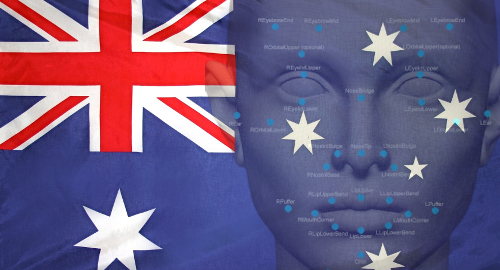 Australia’s government is mulling the use of facial recognition software to ensure only adults can access controversial online content, including gambling and pornography sites.
Australia’s government is mulling the use of facial recognition software to ensure only adults can access controversial online content, including gambling and pornography sites.
The Australian Associated Press recently reported that the Department of Home Affairs had informed a parliamentary committee that comparing facial scans with data already in government hands – such as driver’s license or passport photos – could “assist in age verification” for individuals attempting to access controversial websites.
In addition to ensuring a user was of legal age to access pictures of boobies or punt on Aussie rules football, facial recognition technology could also spoil efforts by self-excluded gamblers to circumvent their restrictions. So far, so good.
But privacy advocates have raised alarm over this plan, which would authorize access to the biometric database not only by different government agencies but also by private companies like telecoms and banks, some of which haven’t exactly demonstrated sufficient dedication to information security.
Recall that the mammoth 2017 breach of Equifax data was made possible because some of the sensitive customer information in their possession was stored unencrypted on portals for which both username and password was ‘admin’ and you get a sense of why people are viewing the Aussie government’s plan with unease.
There are also major concerns that such a system would invariably lead to a dramatic ramp-up of surveillance, even of individuals not suspected of any illicit activity. One only has to look at more authoritarian regimes, such as China, to understand the slippery slope down which this plan could slide.
In addition to its widespread use of surveillance cameras in public places, China recently announced that, as of December 1, all citizens seeking to get a new phone number or sign up for internet access will have to submit biometric data. Telecom carriers will also be tasked with verifying that mobile or landline accounts are registered under real names, and any accounts that fail to match will be cancelled.
These new measures take China’s Big Brother obsession to a whole new level. Particularly when combined with its notorious ‘social credit’ system, which ranks citizens based on their compliance with the government’s stated norms. Anyone who scores low on this system can find themselves barred from traveling or accessing bank loans and other services, and thus the system not-so-subtly encourages individuals to self-censor their activities, both online and ‘real world.’
However, governments aren’t always down with more surveillance, particularly when it’s being used by someone other than themselves. Consider Macau’s recent decision to pause their casino licensees’ rollout of ever more capable facial recognition systems, based on politicians’ concerns that casinos could use the tech to more efficiently separate customers from their cash.
It’s often said that technology is merely a tool; how it’s used depends on who wields it. But nobody should be blind to the possibility that the technology that promises so much can also be used for nefarious purposes. Or that freedoms, once surrendered, are much harder to reclaim.